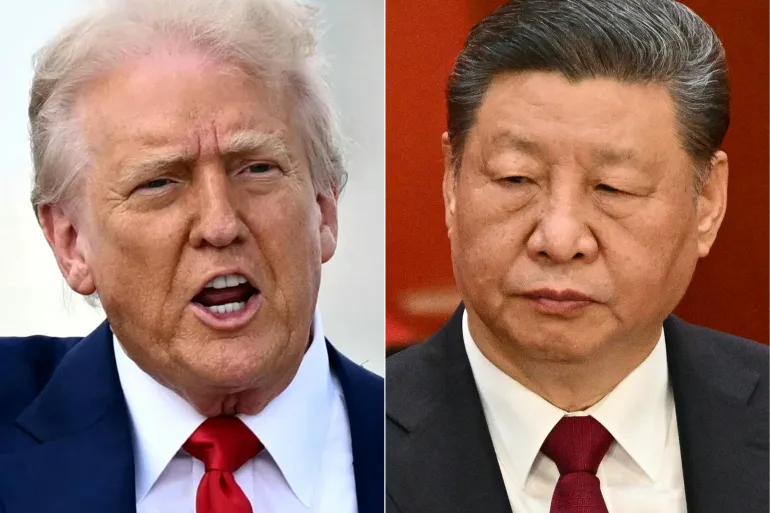Financial institutions are reassessing their views on China following an unexpected trade truce between the U.S. and China, which has led to revisions in both the country’s growth projections and stock market outlooks.
On Monday, the U.S. and China agreed to temporarily suspend most of the tariffs on each other’s goods for 90 days. As part of the deal, tariffs will drop from 125% to 10%.
This agreement represents a significant de-escalation of tensions between the two nations, following the retaliatory tariffs introduced by U.S. President Donald Trump in April, which had prompted several banks to lower their growth forecasts for China.
Several financial institutions are now adjusting their outlooks for China’s economy.
UBS noted in a report that China’s GDP growth could reach 3.7% to 4% in 2025, up from their previous estimate of 3.4%, due to the potential for a “smaller shock” to China’s economic growth following the de-escalation of the trade war.
Morgan Stanley has also raised its short-term quarterly GDP projections for China, anticipating that companies will seek to accelerate exports to take advantage of lower tariffs.
“Although tariffs remain high, the suspension period could lead to preemptive shipments and production,” Morgan Stanley analysts explained. The bank now expects China’s second-quarter GDP growth to exceed the previous forecast of 4.5%, with third-quarter growth predicted to surpass 4%.
ANZ Bank has also revised its forecast for China’s GDP growth to over 4.2% this year, up from its April forecast of 4.8%.
Similarly, Natixis has raised its growth forecast for China to 4.5% this year, up from its original 4.2% prediction, should there be further stimulus and tariff cuts. This follows a reduction in their earlier GDP forecast of 4.7% in April.

Cautious Optimism for Chinese Markets
The improved growth outlook has had a positive impact on the Chinese equity market.
Nomura has upgraded its view on Chinese equities to “tactical Overweight” and has shifted some investments from India to China following the trade truce.
Citi has also increased its year-end target for the Hang Seng Index to 25,000, expecting it to rise to 26,000 by mid-2026.
However, Citi’s China equity strategist Pierre Lau emphasized his preference for domestic investments that are less affected by tariff uncertainty. He has upgraded the consumer sector from neutral to overweight, while also highlighting promising opportunities in China’s tech and internet sectors.
Eddy Loh, Chief Investment Officer at Maybank, sees attractive risk-reward potential in Chinese stocks, particularly in the communication services and consumer discretionary sectors. He noted that valuations remain undemanding.
William Ma, CIO of GROW Investment Group, who has traditionally been optimistic about China, believes that the recent rally in Chinese markets reflects a sustained re-rating, supported by Chinese policy easing and consumption stimulus, which could provide an additional boost to both the economy and markets.
The CSI 300 index in China rose slightly on Tuesday after gaining 1.6% in the previous session. Hong Kong’s Hang Seng Index surged nearly 3% on Monday but dropped by 1.5% on Tuesday.
Some experts, however, cautioned against becoming overly optimistic about the stock market rebound, as it may just be a tactical bounce.
Although the U.S.-China trade talks yielded better-than-expected results, the deal remains temporary and could be subject to changes. The 90-day suspension of tariffs does not guarantee a lasting agreement, especially given the ongoing mistrust between the two countries, according to Natixis’ senior economist Gary Ng.
Dan Wang, Director of China at Eurasia, added that while the trade talks’ outcome was a surprise and not anticipated by the markets, it does not change the bigger picture. “China’s stock market still depends heavily on domestic factors, which remain weak,” she said, pointing to struggles in the property sector and rising local government debt, which is leading to reliance on state-backed support.
Trump, who views tariffs as an important tool for political leverage, may not maintain low tariffs for long, Wang warned.
“This is a temporary pause, not a breakthrough in the bilateral relationship. A 90-day truce is short in trade diplomacy,” she concluded.






